I can’t believe I am writing about the last few weeks of our Team CASPA project. Tomorrow is our final day, when we will be leaving the Museum of London archive behind to visit the museums’ Docklands site and carry out a little public engagement. We will be sharing what we have learnt about Fulham Pottery over the last few weeks and we have chosen some of our favourite archaeological finds to show to the public.
In some ways everything we have been doing has been leading up to this point, but in other ways it is perhaps the least important part of the process. Team CASPA have already achieved so much, if the worse should happen and none of them turn up tomorrow (my secret fear) I still couldn’t be prouder of all they have done and achieved.
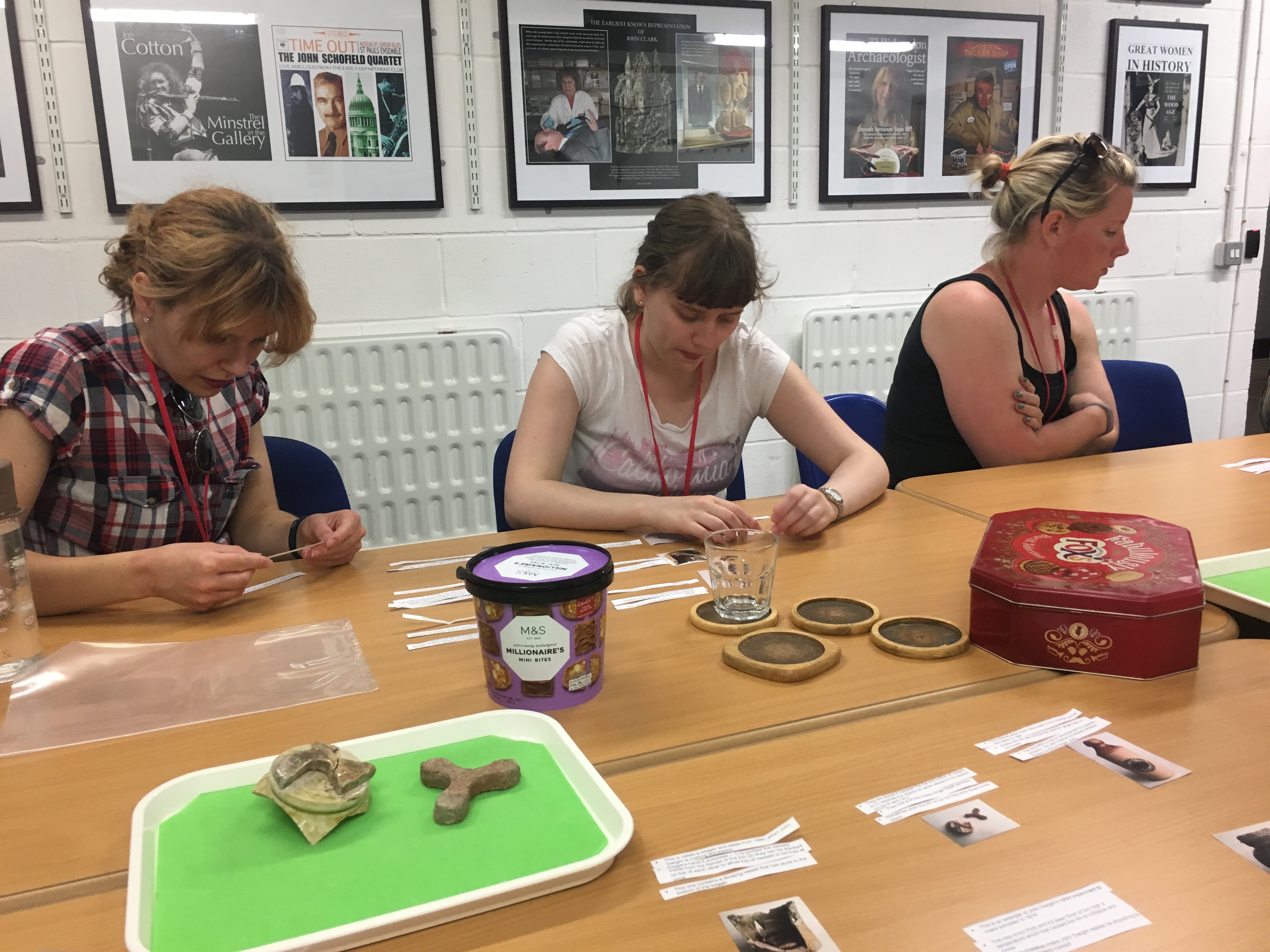 Over the weeks we have noticed individuals in the group becoming more confident and chatty, we have watched their skills grow and their knowledge increase. I have talked to Adam and Lucy, who are running the project, on a number of occasions about adaptations we could try that might make the public engagement side of the work less daunting. If you are not used to talking to the public, the thought of standing behind a tray of 17th century pottery ready and waiting for all sorts of questions to be thrown at you can seem, reasonably, quite frightening.
Over the weeks we have noticed individuals in the group becoming more confident and chatty, we have watched their skills grow and their knowledge increase. I have talked to Adam and Lucy, who are running the project, on a number of occasions about adaptations we could try that might make the public engagement side of the work less daunting. If you are not used to talking to the public, the thought of standing behind a tray of 17th century pottery ready and waiting for all sorts of questions to be thrown at you can seem, reasonably, quite frightening.
I remember my first public engagement work as a volunteer, standing in Tesco with a lot of Roman pottery, it was quite a surreal experience. I remember being petrified, I was worried I would have to know everything. What if someone asked me a question I couldn’t answer? Looking back I know I had nothing to worry about but hindsight is a wonderful thing. One training session was enough to prepare me for any public engagement session but for Team CASPA, Adam and Lucy have been thinking a bit more creatively to prepare our group.
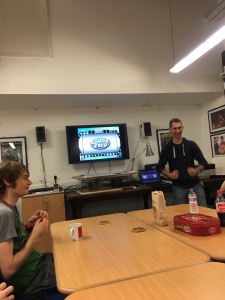 Social communication can be difficult for people on the autism spectrum, reading social cues, picking up on facial expressions, knowing when to speak or when to listen can cause problems. These unwritten social skills that many of us take for granted can be missing or take a bit more time to learn. It might appear an autistic person isn’t listening if they are not giving you eye contact or they maybe having trouble process what you are saying. Sometimes autistic people can take what you say literally, sarcasm and irony can be misunderstood. An autistic person may only want to talk about their own special interest or obsession and not engage in other topics of conversation.
Social communication can be difficult for people on the autism spectrum, reading social cues, picking up on facial expressions, knowing when to speak or when to listen can cause problems. These unwritten social skills that many of us take for granted can be missing or take a bit more time to learn. It might appear an autistic person isn’t listening if they are not giving you eye contact or they maybe having trouble process what you are saying. Sometimes autistic people can take what you say literally, sarcasm and irony can be misunderstood. An autistic person may only want to talk about their own special interest or obsession and not engage in other topics of conversation.
But the thing you very quickly learn if you meet and spend time with any autistic person is they are all different. You can’t come at it with a tick box approach. A bit of understanding and flexibility can go a very long way.
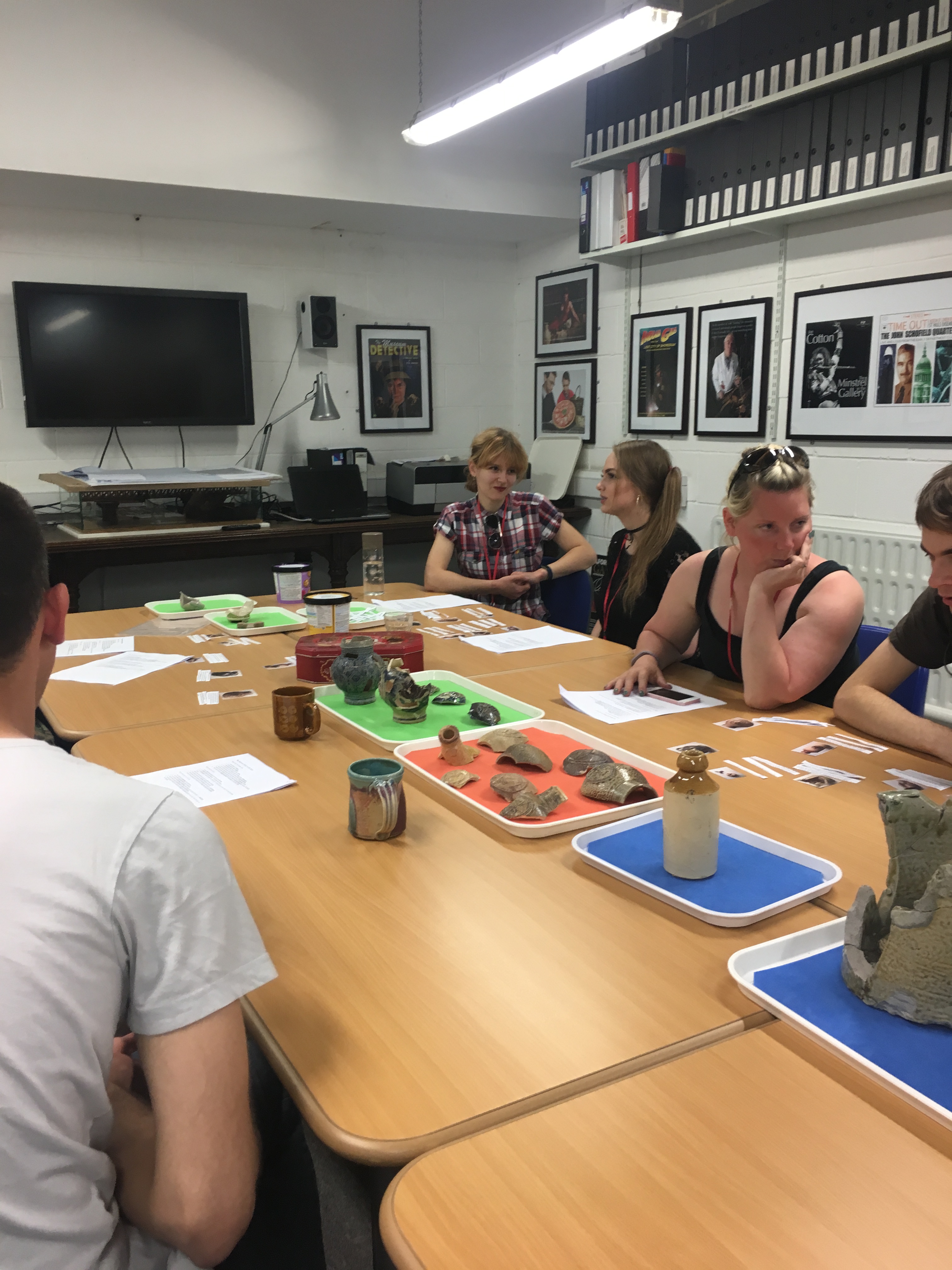 For our Fulham project, over a number of weeks we have been working on social interaction skills to prepare for the public engagement session at Docklands. Small bite size chunks of practice and reinforcement has helped the group gain confidence and get used to speaking to a group audience.
For our Fulham project, over a number of weeks we have been working on social interaction skills to prepare for the public engagement session at Docklands. Small bite size chunks of practice and reinforcement has helped the group gain confidence and get used to speaking to a group audience.
We began in pairs simply telling the other person what we had for breakfast and asking them the same question. We then went round the room and shared what our partner had for breakfast. We repeated this for something we had done in the week that we were proud of. Finally we asked our partner one thing they could remember about the Fulham site.
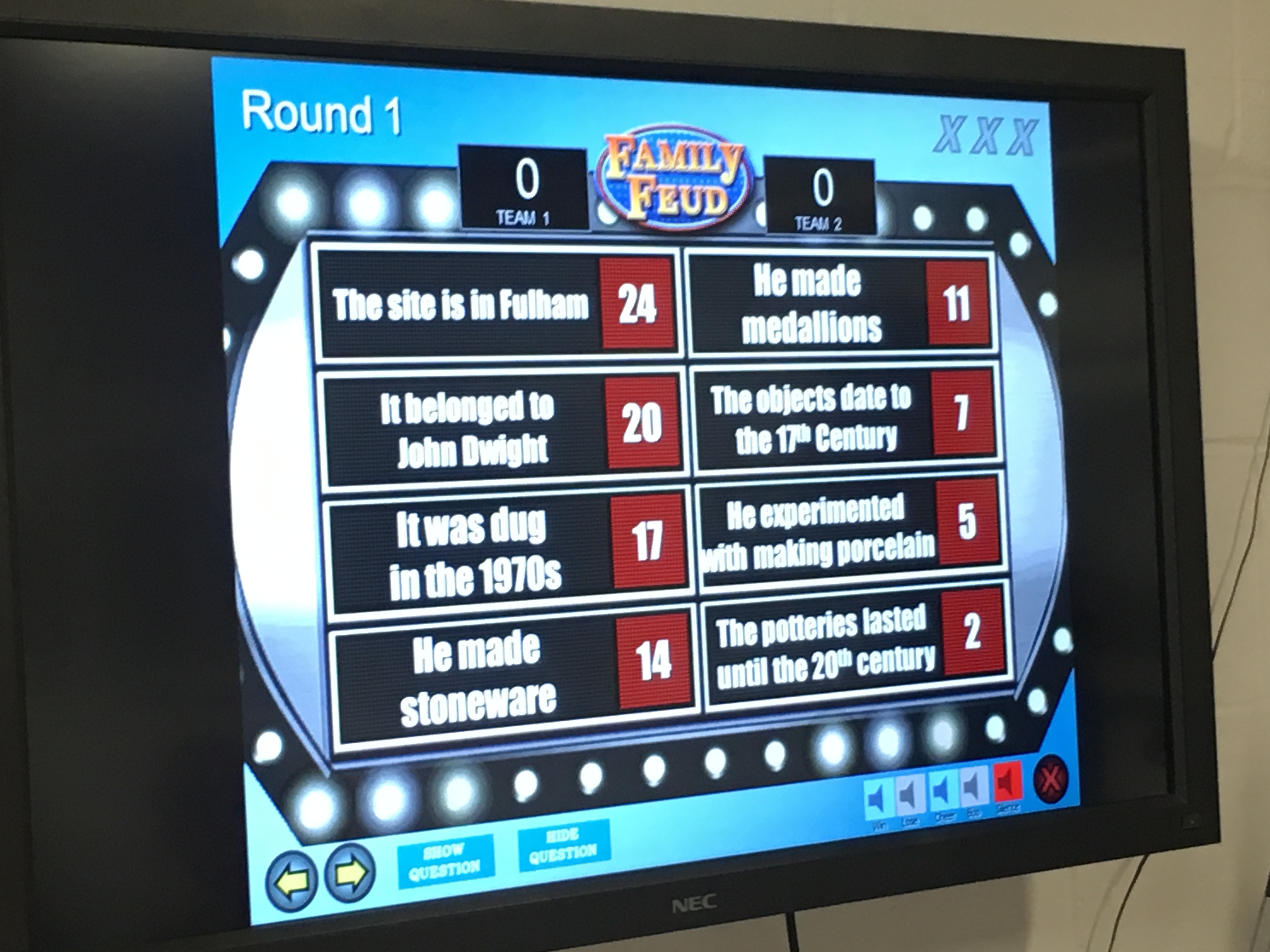 On other weeks we have discussed trays of Fulham objects as a group, teasing out dates and facts, surprising ourselves with how much we know. We have played games and had fun and as the weeks have passed I have heard the confidence in answers increase and the realisation that they know so much finally start to hit home.
On other weeks we have discussed trays of Fulham objects as a group, teasing out dates and facts, surprising ourselves with how much we know. We have played games and had fun and as the weeks have passed I have heard the confidence in answers increase and the realisation that they know so much finally start to hit home.
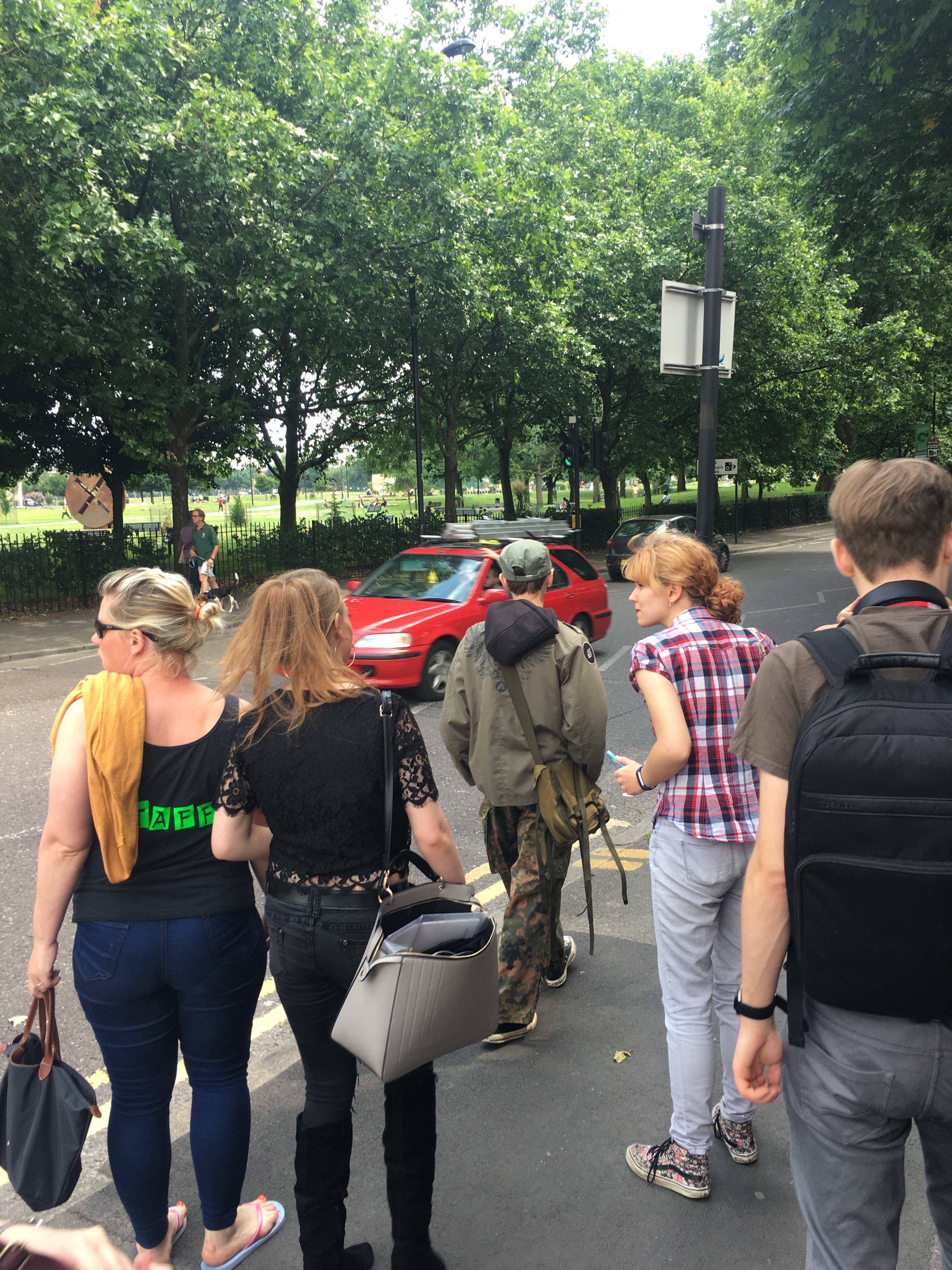 A final stage before we undertake our public engagement was a trip to Docklands to get a sense of the museum and start to visualise where we will be tomorrow. I am already starting to feel sad that this special time is coming to a close.
A final stage before we undertake our public engagement was a trip to Docklands to get a sense of the museum and start to visualise where we will be tomorrow. I am already starting to feel sad that this special time is coming to a close.
One thing I have learnt whilst spending time with Team CASPA is to never underestimate what a young person with autism can do. There can certainly be more challenges to life, the path is not smooth and good support and help from local networks and family can make a massive difference. We certainly couldn’t have done this project without the help of Helen and Sarah from CASPA who have brought this idea of offering work experience into a reality with their enthusiasm and commitment.
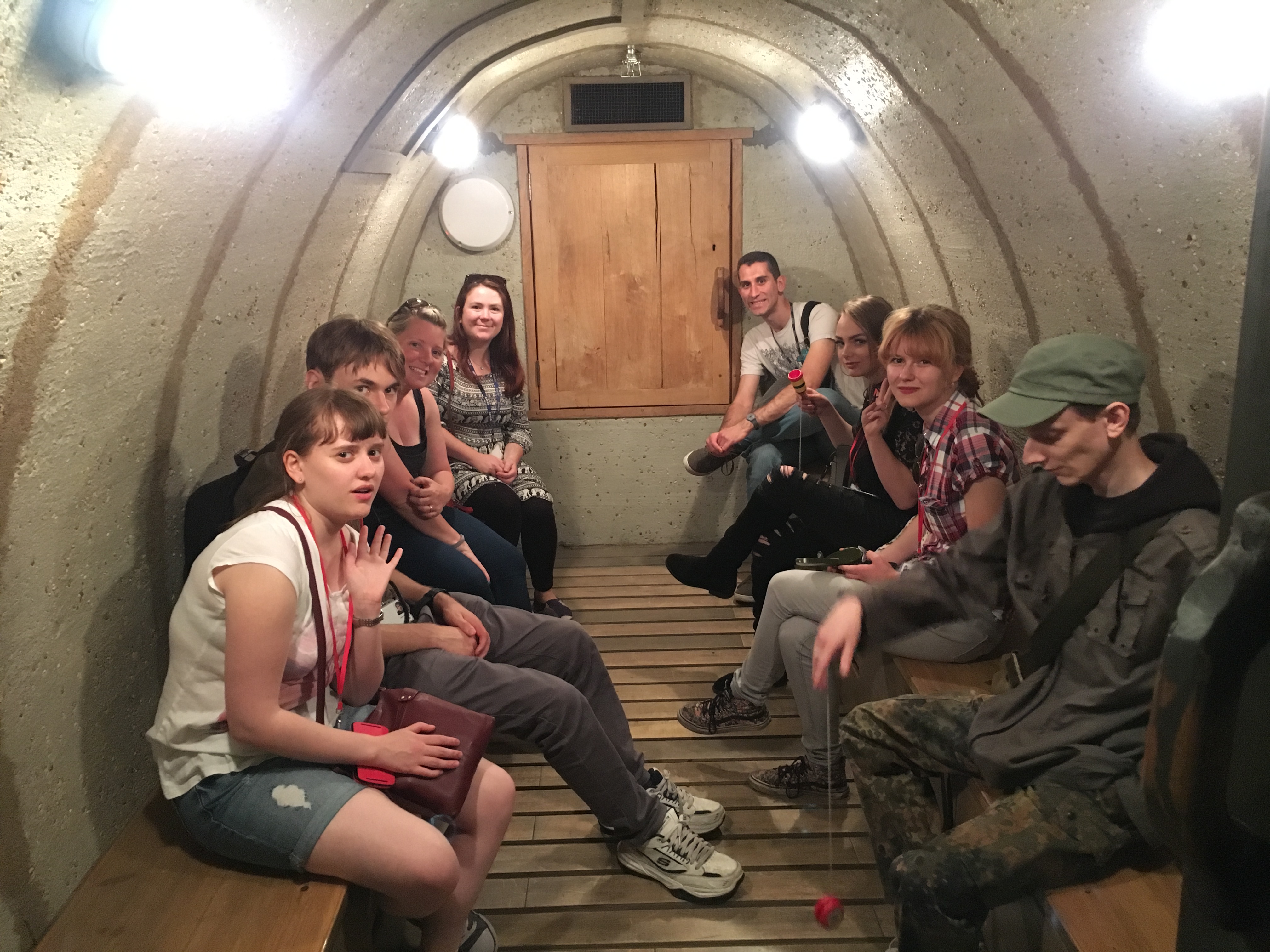 I know some of the group may be worried about the public engagement, I know some might not make it on the day. But I am still so proud of their achievements and I really want them to know that this can be the start for them, not the end. From here there are always opportunities out there and if there aren’t many I will make it my business to try and push for more. A conversation about autism should never be about what you can’t do and what you find difficult. It needs to be about what you can do and how amazing you are.
I know some of the group may be worried about the public engagement, I know some might not make it on the day. But I am still so proud of their achievements and I really want them to know that this can be the start for them, not the end. From here there are always opportunities out there and if there aren’t many I will make it my business to try and push for more. A conversation about autism should never be about what you can’t do and what you find difficult. It needs to be about what you can do and how amazing you are.
I just hope you take that with you, along with all your facts about Fulham and John Dwight and 17th century gorges because I really want this to be a beginning, a start for something even better just round the corner.
xxxxxxxxxxxxxxxxx
You can read more about our adventures as Team CASPA here – https://tinctureofmuseum.wordpress.com/?s=TeamCASPA


